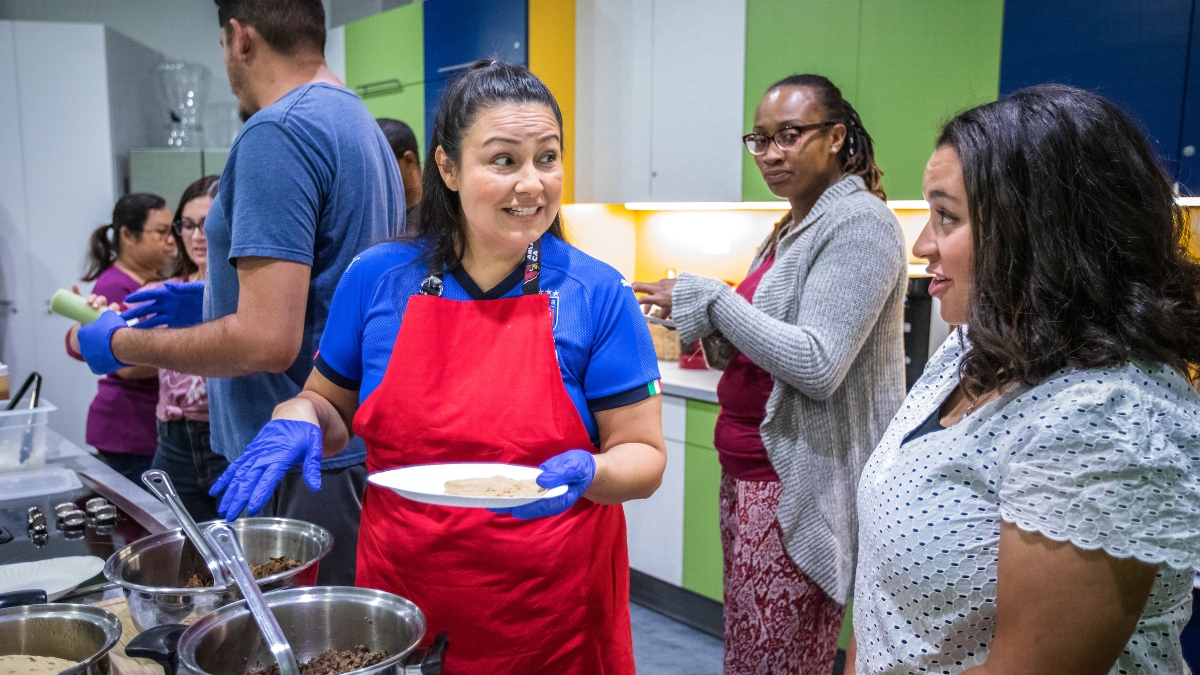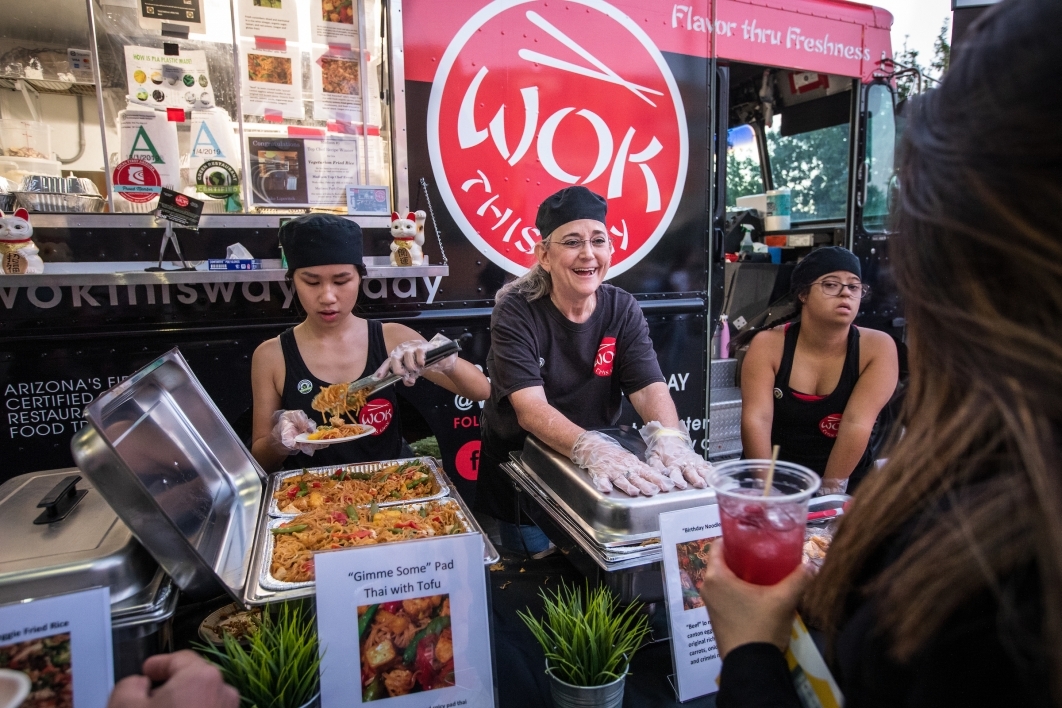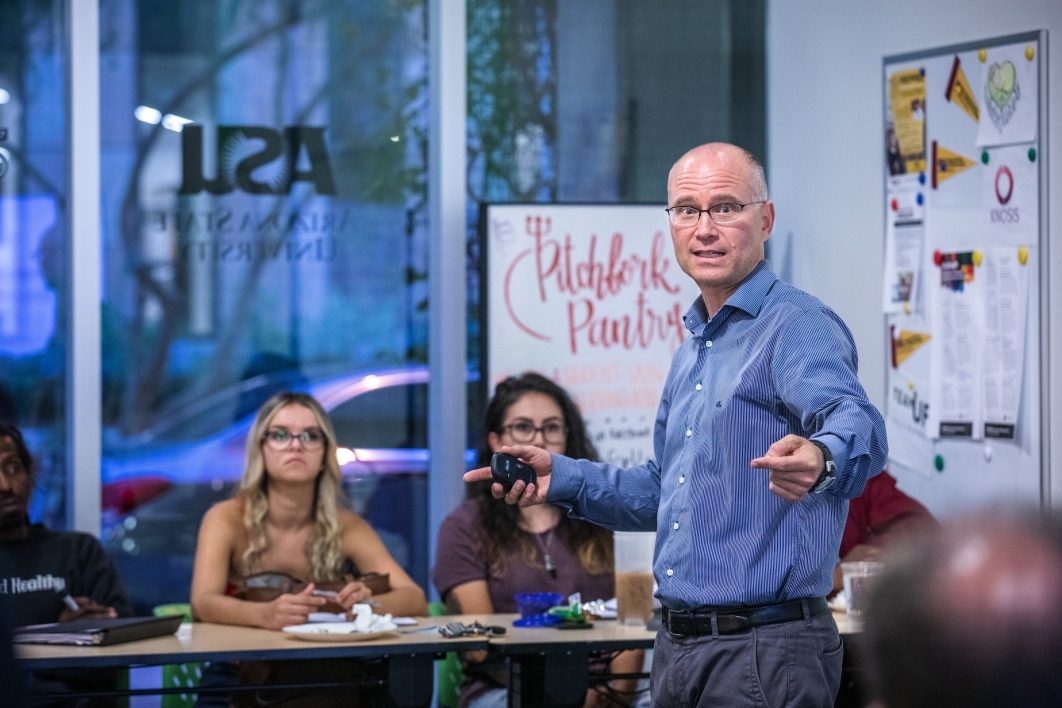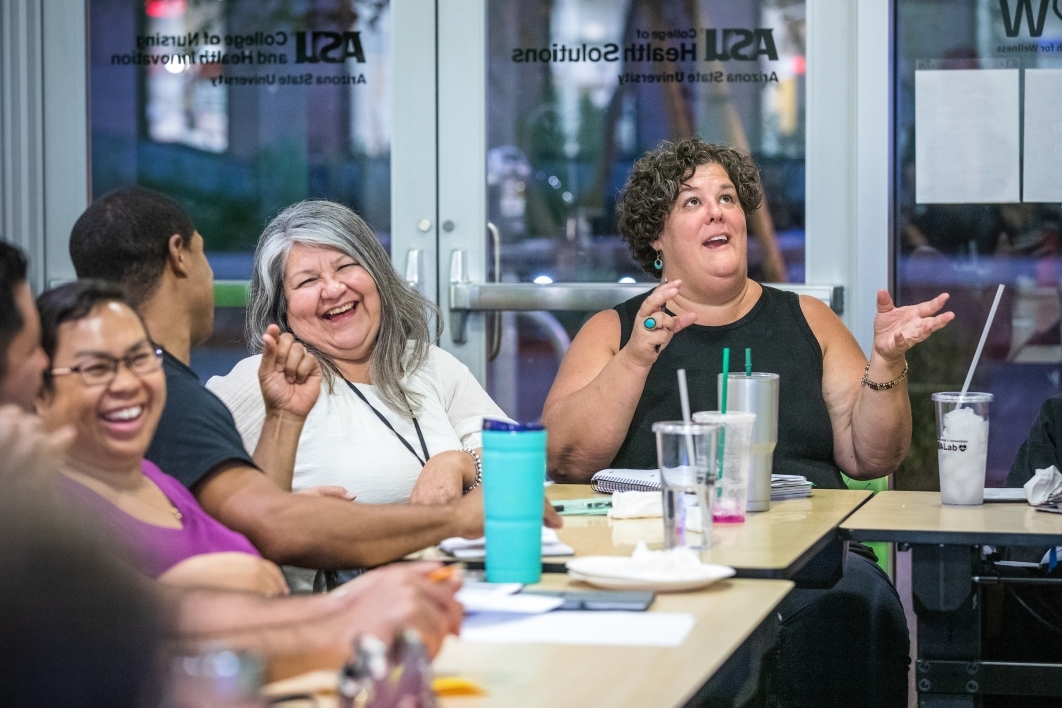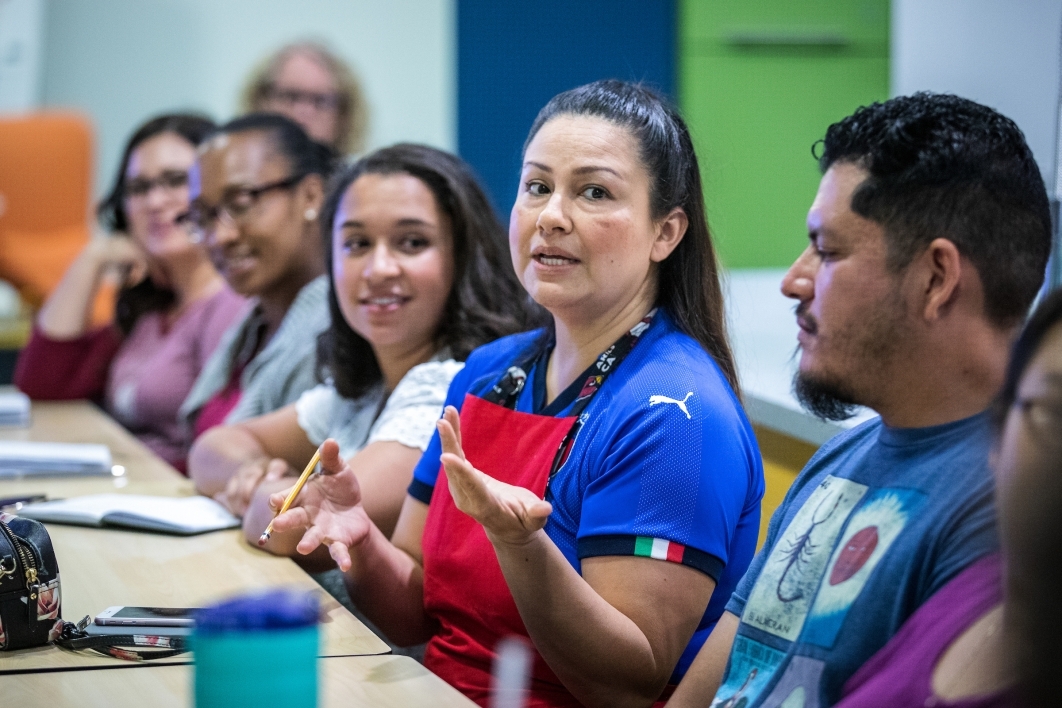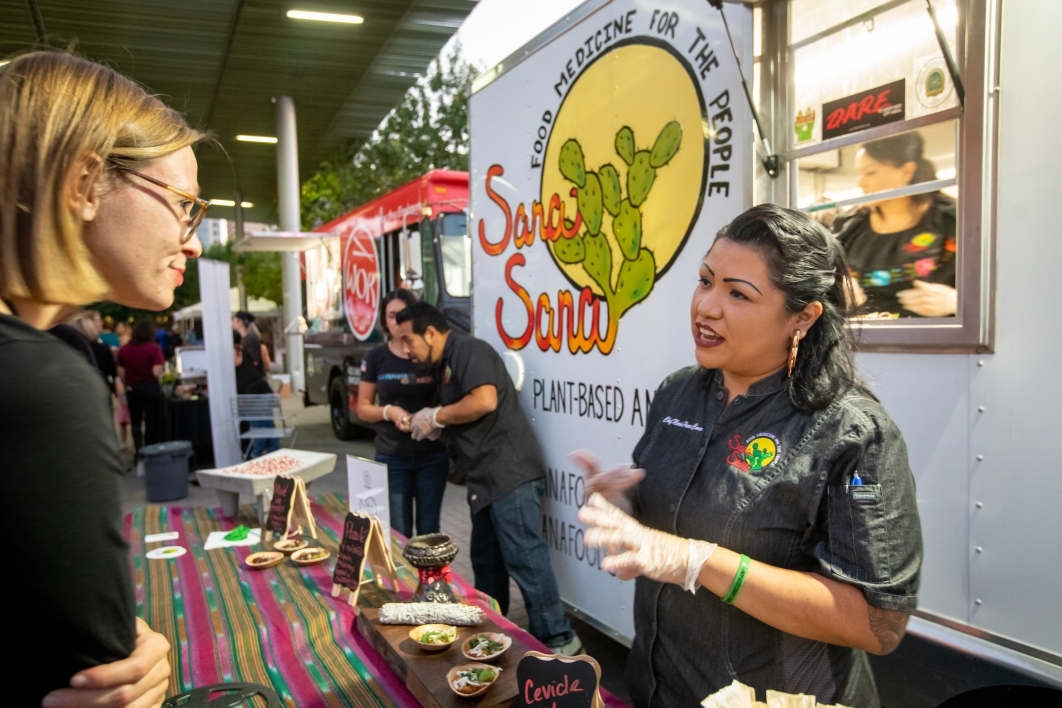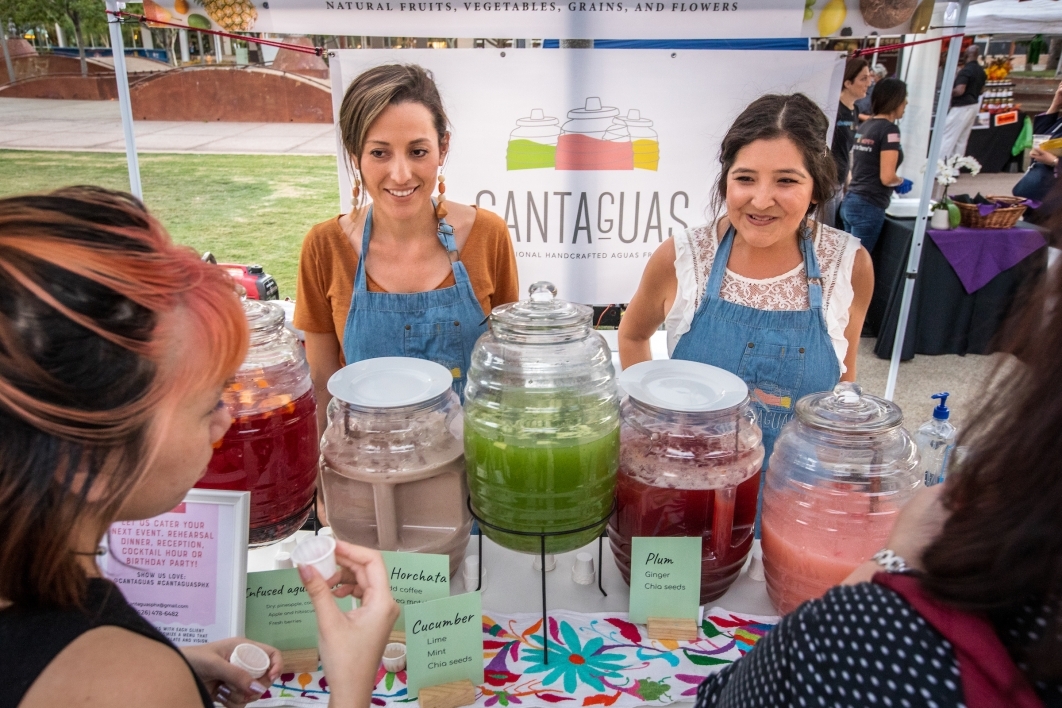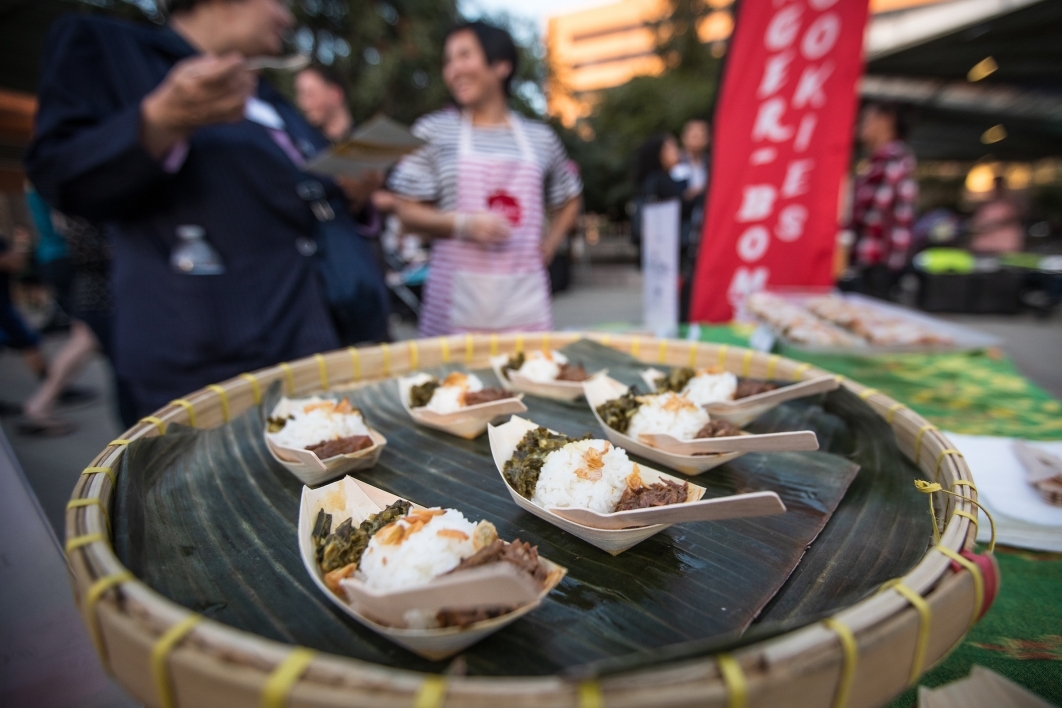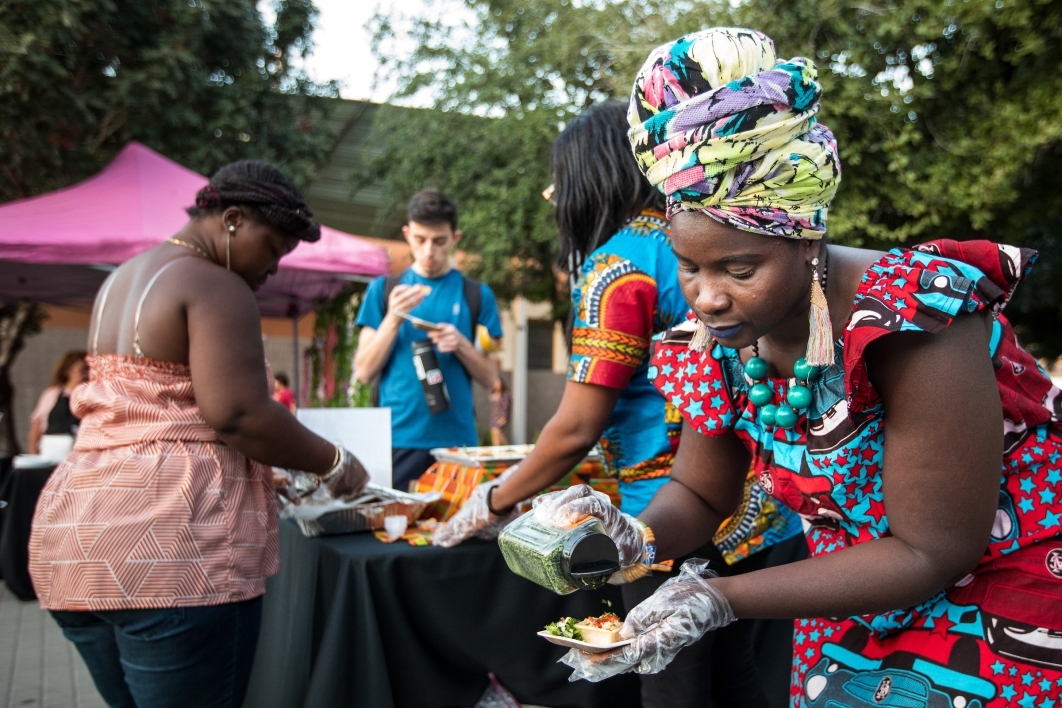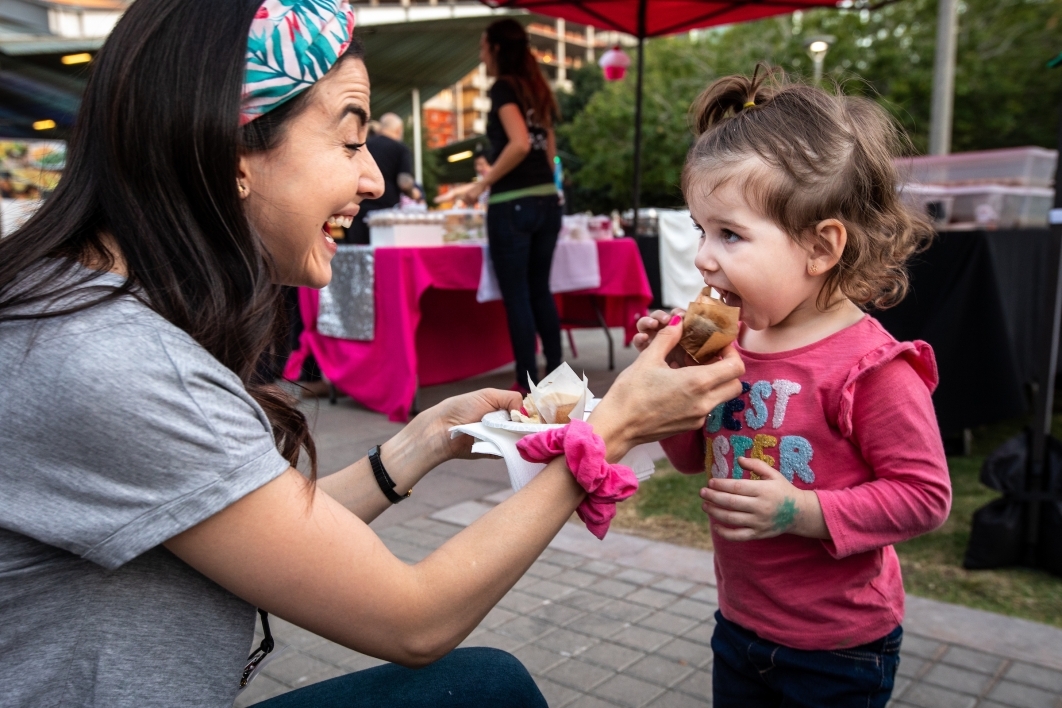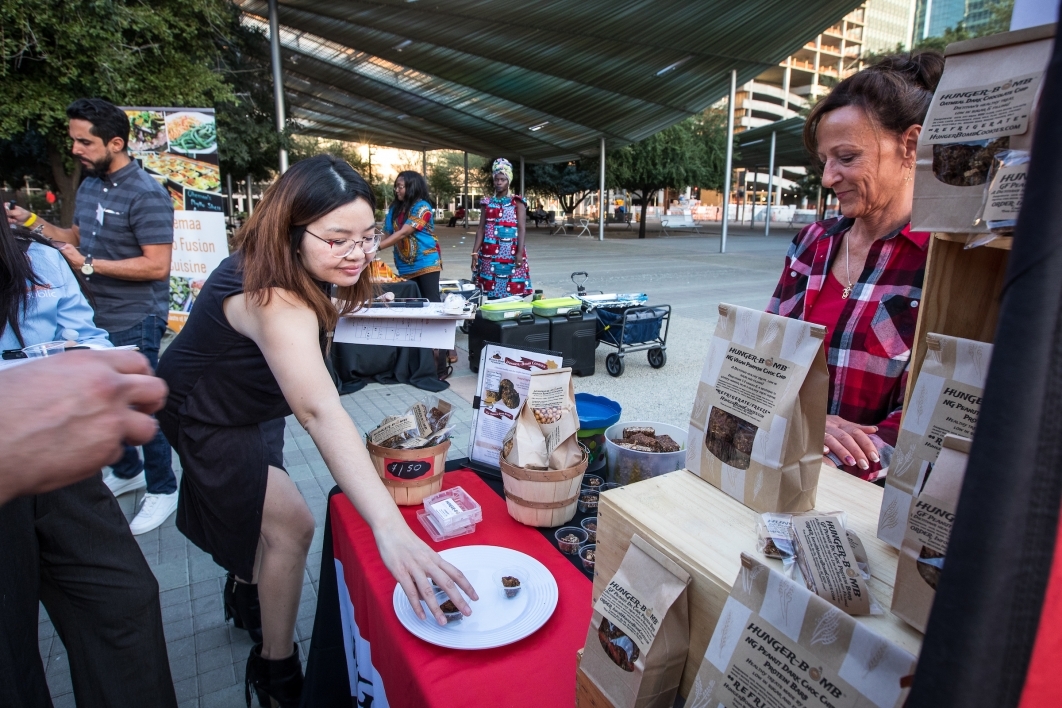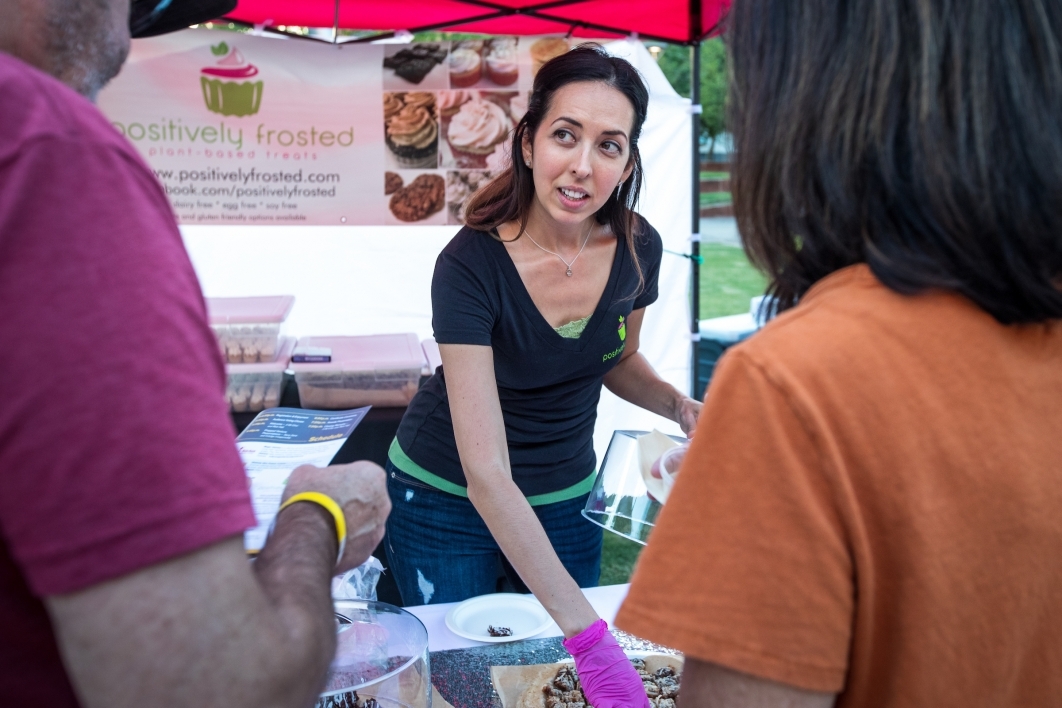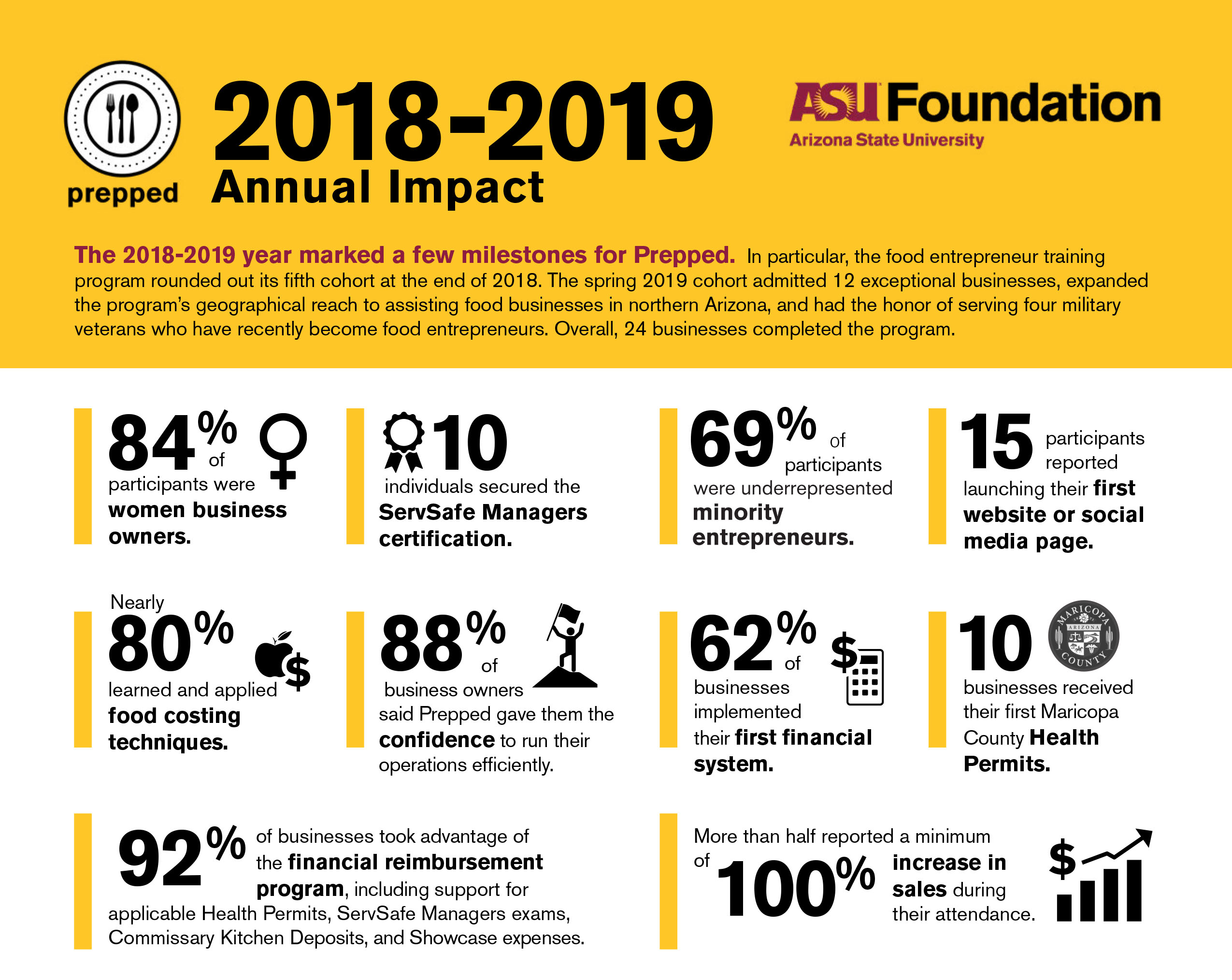Update: At the Oct. 18 Prepped Showcase, Sana Sana Foods owner Maria Parra Cano won the $5,000 grand prize and Cantaguas owners Elva Covarrubias and Irene Gonzalez the $3,000 second prize. Churro GoNUTZ won the $2,000 people’s choice award. See photos from the evening in the slideshow below.
—
What the food industry needs now is more players in a circular food economy — one that improves rather than degrades the environment.
ASU School of Sustainability Professor Arnim Wiek proclaimed this to a rapt group of about 20 on a recent Wednesday night at the HEALab entrepreneurial space on the Downtown Phoenix campus where they had gathered to participate in Prepped, a free, early-stage food business accelerator program designed for ventures owned by women and underrepresented minorities.
Founded in 2016 as a collaborative effort between Entrepreneurship and Innovationa unit of ASU Knowledge Enterprise Development, Edson College of Nursing and Health Innovation and the College of Health Solutions, Prepped welcomed a new partner into the mix this semester with the addition of the School of Sustainability.
The school’s inclusion in the program felt like a natural move, said Ji Mi Choi, associate vice president of Knowledge Enterprise Development at Arizona State University.
“Entrepreneurship and Innovation is always looking for ways to uphold ASU’s design aspirations,” she said. “Prepped already does a good job of valuing entrepreneurship, leveraging our place and being socially embedded. And since sustainability is such a key throughput in all things we do in the university, it just made sense that it should become a core aspect of Prepped.”
The program is geared toward owners of emerging food businesses that are beyond the idea stage, in revenue and seeking the tools to scale. Now, in addition to the already established curriculum that includes food costing and financial literacy, small business marketing and communication strategies, and permits and licensing, participants of Prepped are learning green business operations so that sustainability is built into their company from the start.
Prepped holds weekly classes each fall and spring, allows for interactive peer learning and provides financial support and one-on-one mentorship with industry experts.
During a recent class taught by Wiek, who contributed largely to the development of the new sustainability-centric curriculum, participants learned about food sourcing — local, seasonal, organic and fair trade.
“We’re trying to teach food economy, not just food enterprise,” said Wiek, who also serves as director of the Sustainable Food Economy Lab. “We want Prepped to be an accelerator of the sustainable food economy, which is slowly emerging across the state.”
That evening, he and guest lecturer Kristen Osgood, program manager for the Rob and Melani Walton Sustainability Solutions Service, shared a variety of helpful tools with participants, including a seasonal availability guide and a sourcing template that can be used to identify green, local sources for ingredients.
The benefit of green, local sourcing is a factor some participants already know well. Hedda Fay, co-owner of Masa’s, a Prescott, Arizona, purveyor of homemade baked goods, attested that not only do some farmers markets require vendors’ products to contain a certain percentage of Arizona ingredients, but “if your packaging is plastic, don’t even bother showing up.”
She doesn’t mind abiding by those standards, though.
“For me, that’s important,” Fay said. “When you can tell a customer, ‘This is from (a local farm),’ or, ‘This is pesticide-free,’ it makes a difference.”
According to Osgood, Fay’s claim isn’t just anecdotal.
“Purpose-driven companies that align their business practices with their values often outperform ones that don’t,” she said. “People are tired of companies that are trashing the planet. They want to buy from companies that share their values.”
Since participating in Prepped last spring, Irene Arellano of Cantaguas has taken that to heart. (Though the School of Sustainability only became an official partner this semester, Wiek and other Prepped instructors began testing out the new sustainability curriculum on Arellano’s cohort.)
Cantaguas offers the traditional Mexican beverages known as aguas frescas, which blend water, fruits and vegetables. Before Prepped, Arellano and co-owner Elva Covarrubias mostly bought their ingredients at grocery stores and didn’t re-use their waste. Today, they source as much as possible from local growers, compost their waste and are in the process of switching to compostable materials for their packaging.
And they’ve seen business improve: They went from selling at one farmers market to selling at several, and have even expanded to catering events, with a couple of weddings already under their belt. What’s more, a couple of food truck vendors they became acquainted with through Prepped now carry their products.
“The sustainability lessons were a big eye-opener, because I don’t think we realized what we can actually do,” Arellano said. “We can compost all the fruits and veggies in our own garden, or other companies can do that for us. And we’re so much more aware of our community and what we can do to help one another.”
Later this month, Arellano and several ASU experts will be participating in Owning It, a traveling two-day intensive workshop for women with up-and-coming food businesses. Owning It is an extension of the James Beard Foundation’s Impact Programs, which aim to establish a more sustainable food system through education, advocacy and thought leadership.
This year, Phoenix was chosen as one of three locations to host the workshop due in large part to the work of such program participants as local chefs Sasha Raj of 24 Carrots and Danielle Leoni of The Breadfruit and Rum Bar — both of whom have served as mentors for Prepped.
While a curriculum is set and James Beard Foundation coordinates, they rely heavily on the locale's chefs to recommend other women to lead the daily courses and corresponding pitch competition.
This year, Venture Devils mentor Stephanie Sims, Entrepreneurship and Innovation’s director of community entrepreneurship Alicia Marseille, Prepped program coordinator Natalie Morris and Prepped mentor and owner of Phoenix coffee shop Fair Trade Café Stephanie Vasquez will all be playing a role in the event, bringing their varying expertise to the business owners in attendance.
The annual Prepped Showcase celebrating the accomplishments of the program’s fifth and sixth cohorts will take place Friday, Oct. 18, at the A. E. England Building on the Downtown Phoenix campus. The free event runs from 5 to 8 p.m.
Current Prepped participants Cesar and Erika Rodriguez, the husband-and-wife team behind Taqueria El Sol, are looking forward to serving up their eponymous El Sol tacos at next year’s showcase. For them, owning their own food truck business is the realization of a 10-year-long dream. They say sustainability is something they wanted to incorporate into their business “since Day 1.”
“Now that we’re here and we have these resources,” Cesar said, “we can guide our business in that direction even more.”
Top photo: Prepped participant Erika Rodriquez (left) of Glendale food truck business Taqueria El Sol serves up some carne asada during class on Sept. 11. Photo by Charlie Leight/ASU Now
More Health and medicine

The science of sibling dynamics: Why we fight, how we relate and why it matters
We have Mother’s Day, Father’s Day and even Grandparents’ Day. But siblings? Usually they get a hand-me-down sweatshirt and, with any luck, a lifetime of inside jokes.But actually, there is a…

New study seeks to combat national kidney shortage, improve availability for organ transplants
Chronic kidney disease affects one in seven adults in the United States. For two in 1,000 Americans, this disease will advance to kidney failure.End-stage renal failure has two primary…

New initiative aims to make nursing degrees more accessible
Isabella Koklys is graduating in December, so she won’t be one of the students using the Edson College of Nursing and Health Innovation's mobile simulation unit that was launched Wednesday at Arizona…


